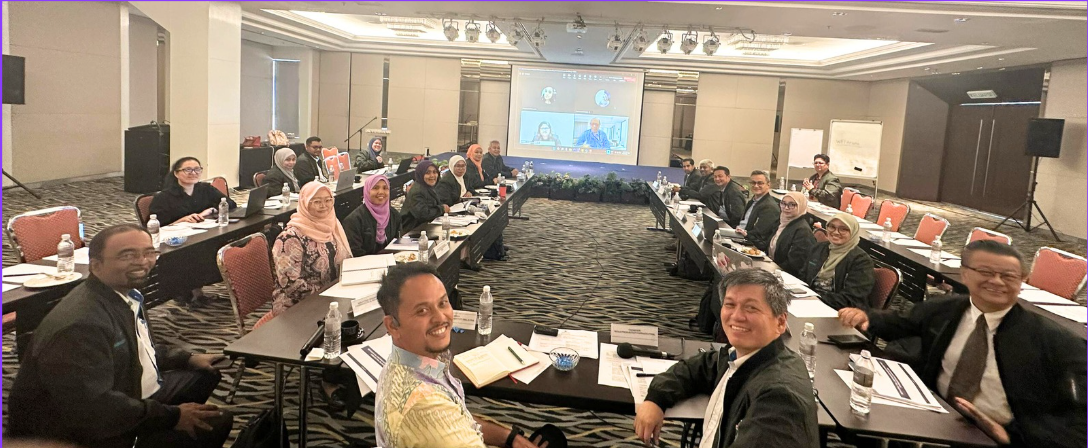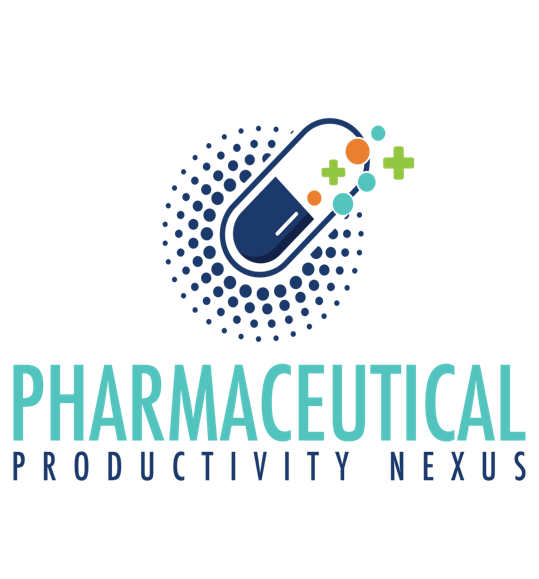
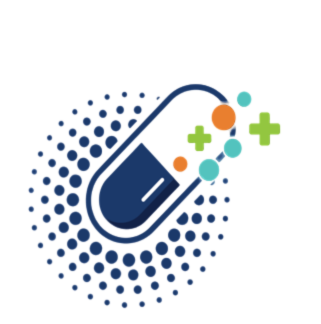
GENERAL OVERVIEW
PHARMACEUTICAL PRODUCTIVITY NEXUS (PN)
The Pharmaceutical Productivity Nexus (PPN) is a strategic national initiative under the Malaysia Productivity Corporation (MPC) designed to boost the productivity, competitiveness, and long-term resilience of Malaysia’s pharmaceutical industry. Anchored to the Twelfth Malaysia Plan (RMK-12), the New Industrial Master Plan 2030 (NIMP 2030), and the National Pharmaceutical Policy, PPN drives sectoral transformation by tackling productivity bottlenecks, accelerating innovation, and embedding best practices across the pharmaceutical value chain. Its scope spans R&D, API production, manufacturing, regulatory compliance, quality assurance, and end-to-end supply chain optimisation ensuring the industry evolves in line with global pharmaceutical standards and emerging health-security demands.
Through close collaboration with regulators, industry leaders, healthcare institutions, academia, and technology providers, PPN advances the adoption of automation, Pharma 4.0 technologies, AI-driven quality systems, and real-time production monitoring. These collective efforts reinforce Malaysia’s pharmaceutical manufacturing sector as a cornerstone of the national economy enhancing supply chain resilience, reducing import dependency, expanding domestic capabilities, and positioning the nation as a competitive regional player in life sciences and biopharmaceuticals.
MPC remains committed to empowering industry players through initiatives that strengthen supply chain performance, accelerate digital transformation, and build a highly skilled workforce, enabling Malaysian pharmaceutical manufacturers to achieve sustainable efficiency and global competitiveness.
Productivity Growth
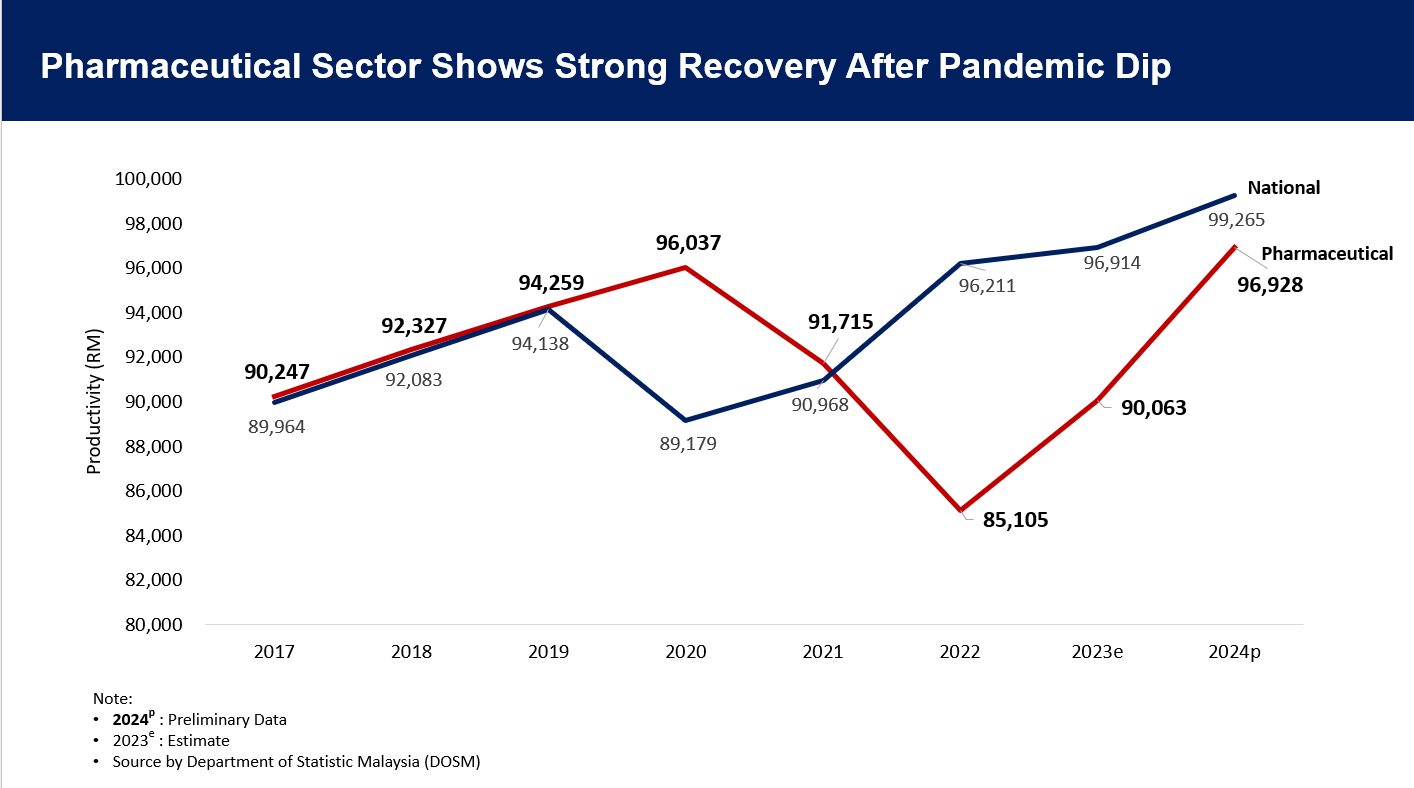
The pharmaceutical sector experienced a noticeable dip in productivity during the pandemic, falling sharply from RM96,037 in 2020 to RM85,105 in 2022. However, the sector bounced back with impressive momentum, climbing to an estimated RM90,063 in 2023 and surging further to a projected RM96,928 in 2024, signalling a solid return to pre-pandemic strength.
In comparison, national productivity showed a steadier recovery curve, rising from RM89,179 in 2020 to RM96,211 in 2022 and continuing upward to a projected RM99,265 in 2024. While the pharmaceutical sector experienced deeper volatility, its rapid rebound underscores strong industry resilience and renewed growth capacity.
Productivity Performance
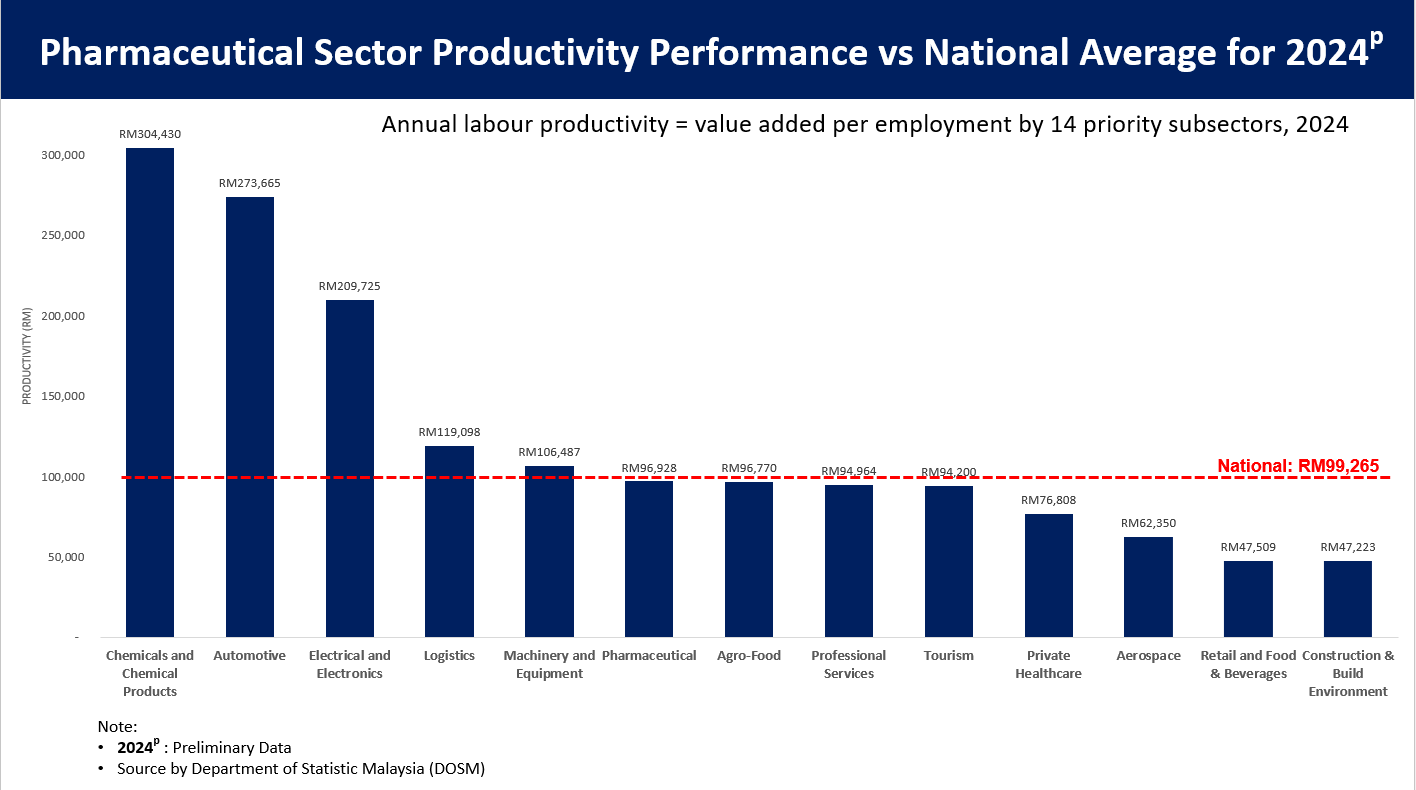
The pharmaceutical sector records a productivity level of RM96,928 in 2024, placing it slightly below the national average of RM99,265. While it outperforms several major subsectors such as private healthcare, aerospace, retail and F&B, and construction, it still trails high-performing industries like chemicals, automotive, and electrical and electronics, which continue to dominate the productivity landscape with significantly higher value added per worker.
Despite being positioned in the middle tier, the pharmaceutical sector’s productivity level demonstrates solid competitiveness among the 14 priority subsectors. Its performance reflects stable value creation and a strong foundation for future growth, especially as Malaysia pushes for higher adoption of advanced technology, regulatory improvements, and innovation-driven production across the life sciences industry.





